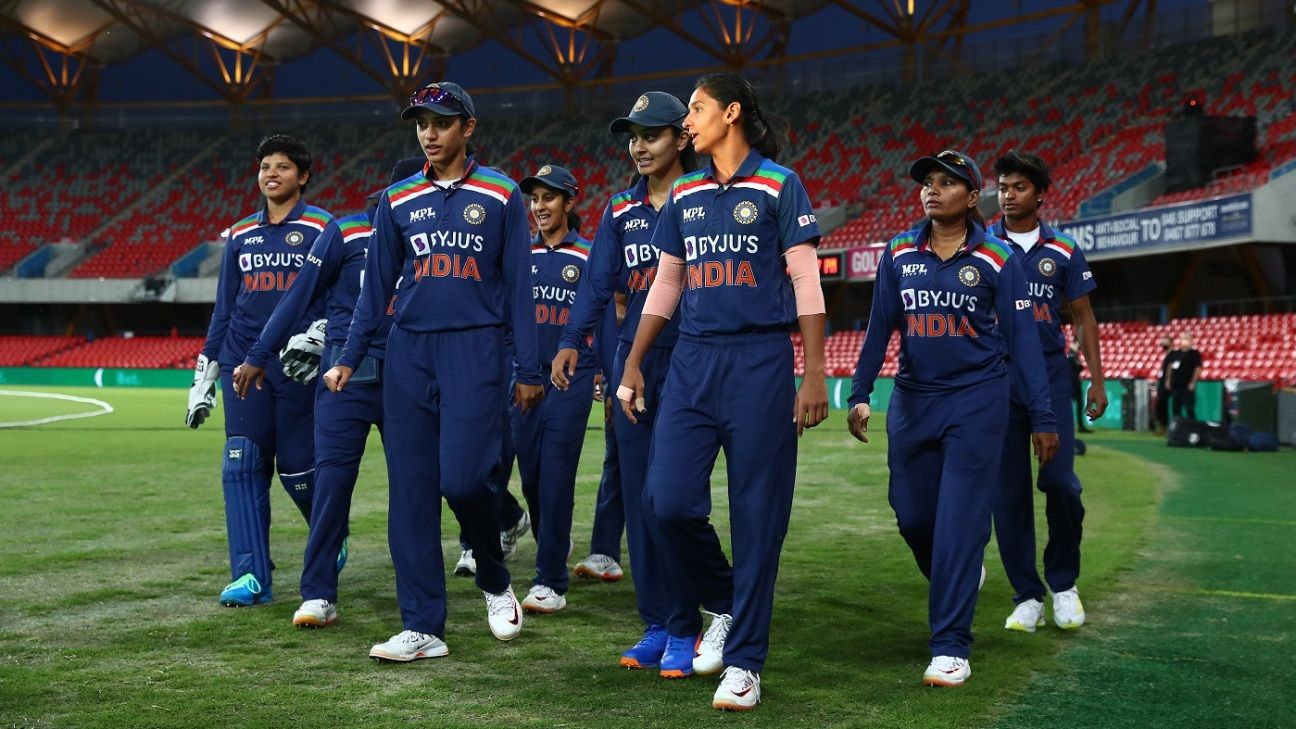The 2022 Commonwealth Games truly feels like the start of a new era in Indian women's cricket. An era without the towering presence of Mithali Raj and Jhulan Goswami, who were ever-present in at least one format until this year's ODI World Cup in New Zealand.
For the last 20-odd years, Raj and Goswami have been synonymous with Indian women's cricket, and they have been integral to many of its watershed moments: the historic Test win in South Africa in 2002, the runners-up finish at the 2005 World Cup, victories over England in Tests at Taunton (2006) and Wormsley (2014), and a first-ever series win (in T20Is) in Australia in 2016.
It's surreal to think of India at a global event without Raj and Goswami as active cricketers. The two long-serving team-mates and friends were guiding lights through turbulent times, their calming presence invaluable when India faced disappointments such as the exits from their home World Cups in 2013 and 2016, and the heart-breaking loss in that Lord's final of 2017.
Goswami retired from T20Is in 2018 and Raj in 2019, and yet as long as they were active in ODIs, the power of their presence cut across formats. In Raj's case, being ODI captain meant she still had a firm influence over the player group.
So even though Harmanpreet Kaur had a certain way of running her T20I team, there was a sense that it wasn't always her team. In a way, it was like Ajinkya Rahane stepping in to lead India's Test team when Virat Kohli was rested. It was Rahane's team at that moment, but it was always Kohli's team.
It's no secret that Raj and Harmanpreet were captains with different methods of leading and they often needed to find a middle ground. Where Raj often chose a safety-first approach by preferring to play an extra batter - a luxury she didn't have for much of her career - Harmanpreet has tended to take an aggressive route, often playing five bowlers and an allrounder.
Raj was all about steady accumulation as a batter; Harmanpreet is full of bristling energy. It wasn't until push came to shove that India, under Raj's captaincy, eventually handed an ODI debut to Shafali Verma, whose power-hitting at the top had been a breath of fresh air in the T20I side. Until then, India had preferred the insurance of Punam Raut, who in comparison to Shafali was more sedate and orthodox.
Harmanpreet's mantra is extremely different - she backs herself and her team to play aggressively. She's tried to get more out of her players, for example, by encouraging Richa Ghosh and Yastika Bhatia to keep wicket, so that the team can play an extra batter or bowler according to the conditions.
Ahead of the tour of Sri Lanka this June, in her first press conference after being made full-time ODI captain, Harmanpreet said she finally felt this was now her team.
"When two different captains were there, sometimes things were not easy because we [Raj and I] both had different ideas," she said. "Now it's easy for me to ask them [the players] what I am expecting from them. Things will be much easier for me and clear for my team-mates also."
Harmanpreet, 33, is at the peak of her powers, having overcome a run of poor form. In Smriti Mandhana, she has a calm, mature vice-captain who leads the way not just as a batter but a role model for future cricketers.
Jemimah Rodrigues, who missed the 2022 World Cup, is primed to be the next middle-order lynchpin across formats, taking on the role Raj once played. Rodrigues is presently in excellent form, having turned her career around after stints in The Hundred and the WBBL.
Bhatia is another free-stroking batter who plays with the energy Harmanpreet likes and backs. She has credited Hardik Pandya for helping her develop a power game after the two worked together in Vadodara when Hardik was recovering from his back injury late last year. This shift in approach has gradually allowed India to be more aggressive and push for higher scores as a batting unit.
With the ball, however, India have plenty of work to do to be a force at the Commonwealth Games. Legspinner Poonam Yadav isn't the force she was two years ago. With India's preference moving towards multi-skilled cricketers, Poonam seems to have lost out to Sneh Rana, who has established herself as an allrounder in both white-ball formats.
While India have identified several players who could fill the void left by Raj, finding a replacement for Goswami is tougher. There's a group of young seamers - Meghna Singh, Renuka Singh Thakur and Pooja Vastrakar - coming through but their inexperience was evident in their final World Cup group match against South Africa. India lost that game and were knocked out of the tournament, even as an injured Goswami sat crestfallen on the bench.
In many ways, the Sri Lanka tour that preceded the Commonwealth Games was India's first step in the post Raj-Goswami era. Both legends may yet have a massive part to play in shaping Indian women's cricket - as administrators, for example - but there is a sense that the national team has finally moved on.
Harmanpreet's team is now in Birmingham to compete in the first women's cricket event at the Commonwealth Games. A medal would be the perfect way to establish a new era in Indian cricket.
